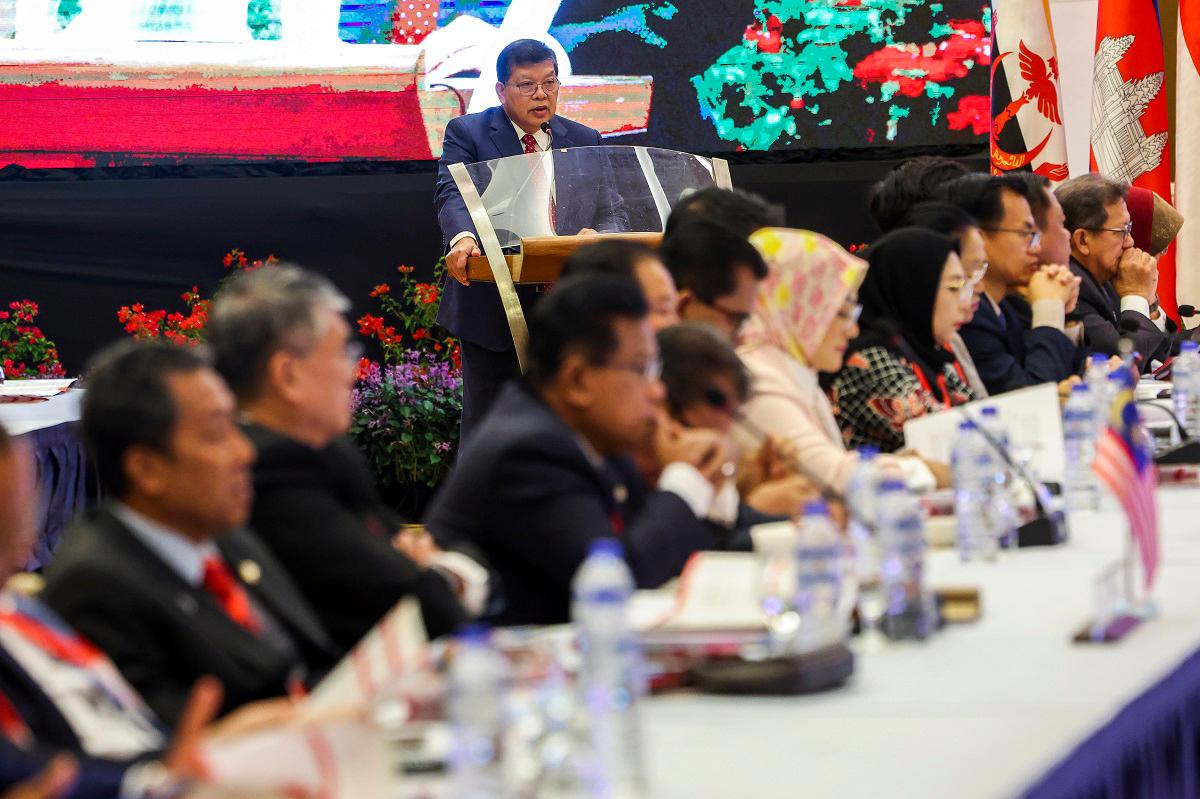KUANTAN: Drug issues, cybercrime, and human trafficking will be the three key areas covered at the 8th Meeting of the ASEAN Inter-Parliamentary Assembly Advisory Council on Dangerous Drugs (AIPACODD) 2025, to be held here.
AIPA President and Dewan Rakyat Speaker Tan Sri Johari Abdul said the meeting will gather ASEAN delegates to exchange views and expertise in tackling these transnational crimes.
“AIPACODD has two main objectives: to foster consensus among ASEAN nations in formulating common policies, and to generate fresh ideas, especially on cybercrime and human trafficking, where we need fresh ideas that require legal input and proposals from member countries,” he said.
Johari was speaking at a press conference on the sidelines of the meeting, themed “Uniting Parliaments for an Inclusive and Sustainable ASEAN in Addressing Contemporary Drug Challenges.”
He added that the meeting’s outcomes will be forwarded to the Parliamentary Select Committee for deliberation before any proposals are tabled in the Dewan Rakyat.
“We will also bring the outcomes of this meeting to the ASEAN Secretariat if they involve administrative matters that require its action, such as drug-related issues, for quicker response and implementation,” he said.
The AIPACODD meeting began today and will continue tomorrow with deliberations and the adoption of the official resolution
It will be followed by a closing ceremony and a speech of appreciation by the representative of the Philippines, which will host the next session.
Tonight, a royal banquet will be held with the consent of the Sultan of Pahang, Al-Sultan Abdullah Ri’ayatuddin Al-Mustafa Billah Shah, symbolising royal support for inter-parliamentary diplomacy in building a safer and more sustainable ASEAN.
In his opening remarks, Johari noted that a United Nations Office on Drugs and Crime (UNODC) report released on May 28 warned of emerging threats facing ASEAN youth from synthetic drug products engineered to evade detection.
“Thai authorities recently seized 1,555 ‘K pods’ containing ketamine and etomidate in vaping products, while etomidate in e-liquids has been detected in multiple member countries, including Thailand, Singapore and Indonesia,” he said.
“These products, with their attractive packaging and perceived ‘safer’ delivery through vaping, are designed to target younger users who may be unaware of the risks,” he said.
Johari stressed that AIPACODD must evolve to stay relevant, as criminal networks now operate with corporate-like efficiency across illicit sectors.
This transformation must recognise that drug trafficking is deeply intertwined with wider criminal ecosystems, including human trafficking, wildlife smuggling, money laundering and cybercrime, he added.









